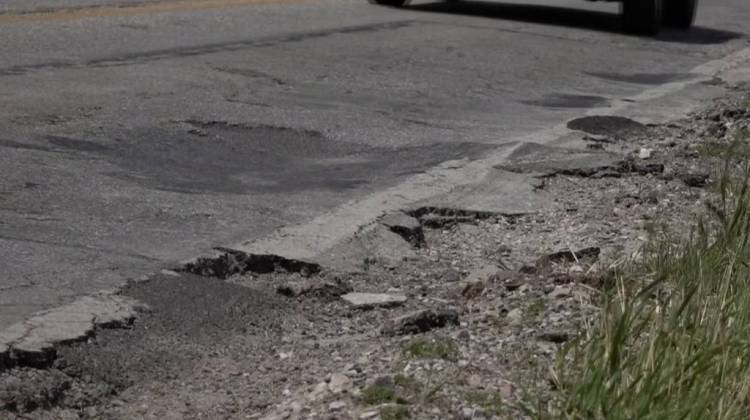Indianapolis Power and Light has agreed to pay more than $1.5 million for alleged air pollution violations at its Petersburg coal plant. That's according to a consent decree filed on Monday between the utility, the state, and the Environmental Protection Agency.
The company has also agreed to reduce the coal plant’s air emissions, preserve land nearby, and build some kind of green power source there.
But the decree says, if IPL goes ahead with its plans to retire two of its Petersburg coal units by 2023, it wouldn’t have to install a device that controls certain greenhouse gases that contribute to climate change.
Wendy Bredhold, with the Sierra Club’s Beyond Coal campaign in Indiana, said the Petersburg coal plant continues to violate its air and water permits. Just a few months ago, the utility was fined for more than 120 water violations at the plant over the past three years. Bredhold said IPL needs to listen to what the public wants.
“Their customers are calling on them to retire this coal plant and replace it with clean energy. The Indianapolis City County Council is calling on them to replace this coal plant, replace it with clean energy," she said.
Kerwin Olson is the executive director of the Citizens Action Coalition. He said, from what he’s read of the decree, it doesn’t seem to provide many direct benefits to people living near the plant.
“Those folks, you know, suffered as a result of what were unlawful toxic emissions from the IPL power plant and we don't see necessarily what's in it for them," Olson said.
READ MORE: You Asked About Environmental Justice And The Effects Of Pollution. We’ve Got Answers.
Shannon Fisk, a managing attorney for the group Earthjustice, said that the decree doesn't seem to require much of any additional pollution controls to reduce emissions from Petersburg beyond IPL's original plans to shut down its two coal units. He said other consent decrees for coal plant pollution violations have also had higher civil penalties.
In a press release, IPL officials said the company hasn’t violated the Clean Air Act and agreed to the settlement to address the EPA’s concerns and avoid litigation.
Contact reporter Rebecca at rthiele@iu.edu or follow her on Twitter at @beckythiele.
Indiana Environmental reporting is supported by the Environmental Resilience Institute, an Indiana University Grand Challenge project developing Indiana-specific projections and informed responses to problems of environmental change.
 DONATE
DONATE









 Support WFYI. We can't do it without you.
Support WFYI. We can't do it without you.